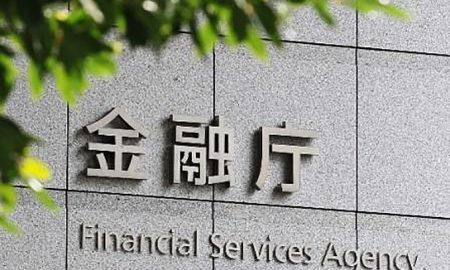
The Japanese regulator has issued business improvement orders to six of the country’s 16 fully-licensed crypto exchanges including Bitflyer, Quoine, and Tech Bureau. The agency confirmed to news.Bitcoin.com that at least one of the six exchanges has some form of involvement with the Yakuza. Responding to the improvement order, Bitflyer has halted new account registrations.
Also read: Yahoo! Japan Confirms Entrance Into the Crypto Space
Punishing 6 Regulated Exchanges
 Japan’s top financial regulator, the Financial Services Agency (FSA), issued six new business improvement orders on Friday, June 22. The orders to Bitflyer, Tech Bureau, Bitpoint Japan, Btcbox, Bitbank, and Quoine follow the agency’s first rejection of a crypto exchange registration on June 7.
Japan’s top financial regulator, the Financial Services Agency (FSA), issued six new business improvement orders on Friday, June 22. The orders to Bitflyer, Tech Bureau, Bitpoint Japan, Btcbox, Bitbank, and Quoine follow the agency’s first rejection of a crypto exchange registration on June 7.
Bitflyer, Japan’s largest crypto exchange by volume, received an “administrative penalty” order. The agency said that after an inspection, “an effective management system has not been established to ensure proper and reliable operation of the business, as well as countermeasures against money laundering and terrorist financing.” The exchange must submit a written report to the agency by July 23. The regulator elaborated:
Management has not established an internal control system including an internal audit, giving priority to reducing costs.
The other five crypto exchanges received similar orders. Japan currently has 16 fully-licensed exchanges. Previously, the only regulated exchanges to receive business improvement orders from the FSA were Tech Bureau which operates Zaif exchange and GMO Coin. Today’s order is the second Tech Bureau has received.
Bitflyer Halts New Account Registrations
 Responding to the FSA’s orders, Bitflyer apologized to its customers and outlined plans to comply with the agency. In order to “promptly build a proper identity management system for existing customers, we have decided to re-check the status of approval,” the exchange wrote, adding:
Responding to the FSA’s orders, Bitflyer apologized to its customers and outlined plans to comply with the agency. In order to “promptly build a proper identity management system for existing customers, we have decided to re-check the status of approval,” the exchange wrote, adding:
If defects and deficiencies are confirmed within a customer’s registration information by any chance, it will be necessary to re-implement the person’s confirmation process. Therefore, in some cases, we ask visitors to re-present their identity confirmation documents, so we are sorry for any inconvenience.
“In addition, we have reexamined the status of identity confirmation of existing customers, and the internal control system. Until reinforcement is in place, [we will] voluntarily suspend account creation by new customers,” Bitflyer emphasized.
Organized Crime Involvement
In an interview with a news.Bitcoin.com reporter in Tokyo, the FSA confirmed that at least one of the six crypto exchanges above was found to have some kind of involvement with organized crime groups, particularly the Yakuza. Without naming the guilty crypto exchanges, a spokesman for the agency told a crowd of reporters:
The FSA found that some companies do not have an updated database for screening the individuals who sign up…We strongly recommend those companies to remove all ties with anti-social forces [organized crime groups].
As the crypto industry grows in Japan, the FSA pointed out the necessity for exchanges to work with the local authorities to create an increasingly secure environment with proper monitoring systems, including screening users identification.
What do you think of the FSA’s action and Yakuza’s involvement with crypto exchanges? Let us know in the comments section below.
Images courtesy of Shutterstock, Nikkei, Firstlogic, and Pixabay.
Editor’s Note: Nathalie Stucky contributed to this article. Some statements have been translated from Japanese.
Need to calculate your bitcoin holdings? Check our tools section.
The post Japan Penalizes Crypto Exchanges – Yakuza Involvement Confirmed appeared first on Bitcoin News.
Powered by WPeMatico
